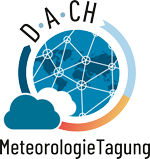Determination of the viscosity of levitated droplets at atmospheric temperatures in an electrodynamic trap
- Institute of Meteorology and Climate Research, Department of Atmospheric Aerosol Research, Karlsruhe Institute of Technology, Karlsruhe, Germany
The impact of atmospheric aerosol on the climate remains poorly understood. Organic aerosol makes up a significant fraction of total aerosol and is prevalent throughout the atmosphere. It can exist as a liquid, semi-solid or amorphous solid. The viscosity of organic aerosol will have an impact on transformations that organic aerosol will undergo during its lifetime such as evaporation and growth, heterogeneous and photochemical reactions as well as the ability to act as an ice nucleating particle. Therefore, it is of key importance to be able to determine aerosol viscosity over a range of atmospherically relevant conditions in order to better understand the impact of organic aerosol on the climate.
Here we report proof of concept viscosity measurements of water droplets levitated in an electrodynamic balance over a range of temperatures. Charged droplets are levitated in a temperature and relative humidity-controlled environment allowing properties over a temperature range of 300 to 220 K to be studied. As the droplets evaporate they reach a point where Coulomb instabilities are induced resulting in droplet oscillations. The relaxation of these oscillations can then be probed to determine the droplet viscosity. Future work will involve determination of the viscosity of different types of organic aerosol over a broad temperature range.
How to cite: Jones, S., Singh, M., Duft, D., Kiselev, A., and Leisner, T.: Determination of the viscosity of levitated droplets at atmospheric temperatures in an electrodynamic trap, DACH2022, Leipzig, Deutschland, 21–25 Mar 2022, DACH2022-152, https://doi.org/10.5194/dach2022-152, 2022.

